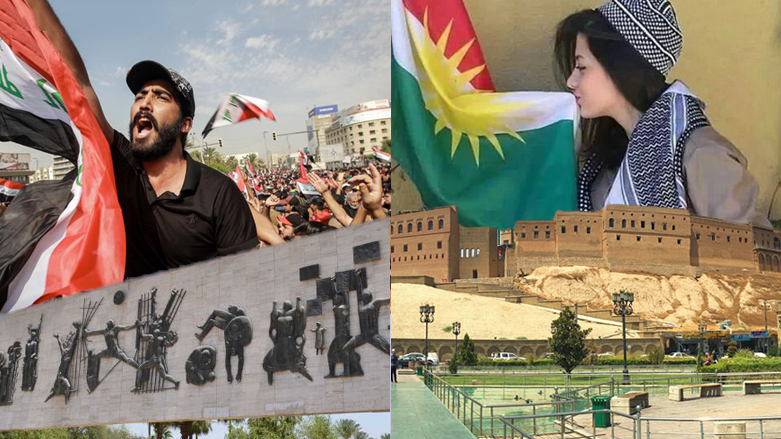'Iraqi Federal Supreme Court is politicized, under external influence': Legislator
Iraq's National Security Council requested the Iraqi Oil Ministry to work closely with the KRG and set a timetable for resolving the oil and gas issue based on the constitution.

ERBIL (Kurdistan 24) – The Iraqi Federal Supreme Court (FSC) decision over Kurdistan Region oil and gas law has been described by Kurdish and Iraqi political leaders as politicized and unfair.
On Tuesday, the top Iraqi court said the Kurdistan Regional Government (KRG) is obligated to "hand over all oil production from oil fields in the Kurdistan Region and other areas from which the KRG's Ministry of Natural Resources extracted oil" to the federal government.
FSC's decision came a week after the Kurdistan Democratic Party (KDP) candidate for the Iraqi presidency, Hoshyar Zebari, was disqualified from the race.
Top officials from the Kurdistan Regional Government (KRG), the Kurdistan Region political elite, and Iraqi political parties and leaders all denounced these two decisions.
On Tuesday, the Kurdistan Regional Government (KRG) and the Kurdistan Parliament condemned the FSC ruling in two separate statements.
Read More: KRG and Kurdistan Parliament condemn Federal Court's ruling on region’s oil and gas sector
"The FSC's decision is unfair, unconstitutional, against the rights and the constitutional authorities of the Kurdistan Region, and this is not acceptable," read the KRG statement. "The FSC should have further investigated the case and took the demands of the people of Kurdistan into consideration."
"The FSC's decision contradicts the principles of the federal system and the constitutional articles," read the Kurdistan Parliament's statement. "These kinds of decisions and way of thinking cause significant damage to the federal system, governing process, and citizenship rights in Iraq."
KDP President Masoud Barzani said the decision was political and contrary to Iraq's federal constitution and system.
Read More: President Masoud Barzani condemns Iraqi top court's ruling on Kurdistan's oil, gas sector
"We hope that the governments of Iraq and the Kurdistan Region will be able to overcome the obstacles and agree on the oil and gas issue," Barzani added, affirming that "the Kurdistan Region will defend its constitutional rights with all its might."
The two Shiite and Sunni allies of the KDP also released statements denouncing the FSC's decision.
On Wednesday, the Iraqi Sunni Al-Siyada Alliance (which has 67 seats at the parliament) also denounced the FSC's ruling in a statement.
"The delay of the Federal Court in deciding fundamental issues or resolving some decisions at critical times at the national level would complicate the sincere efforts towards resolving crises and pushing the country into unknown possibilities," read the statement. "Al-Siyada Alliance believes in partnership based on equality in the country."
Al-Siyada also called on the federal government and the KRG to start direct negotiation for resolving this problem within a defined timetable.
Read More: 'Federal Court's ruling on KRG oil complicates crises': Al-Siyada Alliance
In a tweet on Tuesday, Muqtada al-Sadr, leader of the Sadrist Movement (which has 74 seats in the Iraqi parliament), said that the parliament should do its part to prevent the politicized interference of the FSC in the parliament's affairs.
— مقتدى السيد محمد الصدر (@Mu_AlSadr) February 15, 2022
On Wednesday, Iraq's National Security Council requested the Iraqi Oil Ministry to work closely with the KRG and set a timetable for resolving the oil and gas issue based on the constitution.
KDP member of the Iraqi Parliament Nahro Rawanduzi on Thursday told Kurdistan 24 correspondent Shivan Jabari that the FSC is politicized and under external influence.
"There are strong external influences inside the FSC," he said, adding that this was "why it issued that unfair decision."
"Foreign countries want to influence the strong alliance among KDP, Al-Siyada, and Sadrist Movement," Rawanduzi said. "We expected the FSC to be neutral and issue fair decisions."
"Both decisions of the FSC regarding disqualifying Hoshyar Zebari for Iraq's president position and ruling that the Kurdistan Parliament's oil and gas law is unconstitutional, are completely political decisions, and the FSC itself is becoming part of the problem," he added.
Rawanduzi pointed out that all the problems between Erbil and Baghdad since 2005 were created because Baghdad didn't abide by the constitution.
"The key for the federal government to solve its problems with the KRG is to start implementing the constitution," Sabah Ageli, a Baghdad-based political analyst, told Jabari.
"Unfortunately, we are starting to see the bad consequences of not implementing the constitution."